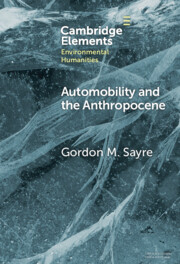Refine search
Actions for selected content:
1 results

Automobility and the Anthropocene
- The Car as Post-Human
-
- Published online:
- 30 May 2025
- Print publication:
- 26 June 2025
-
- Element
- Export citation
